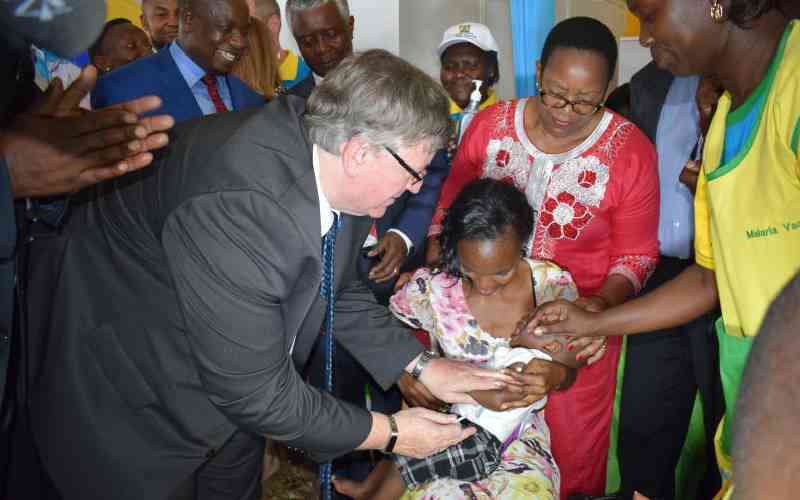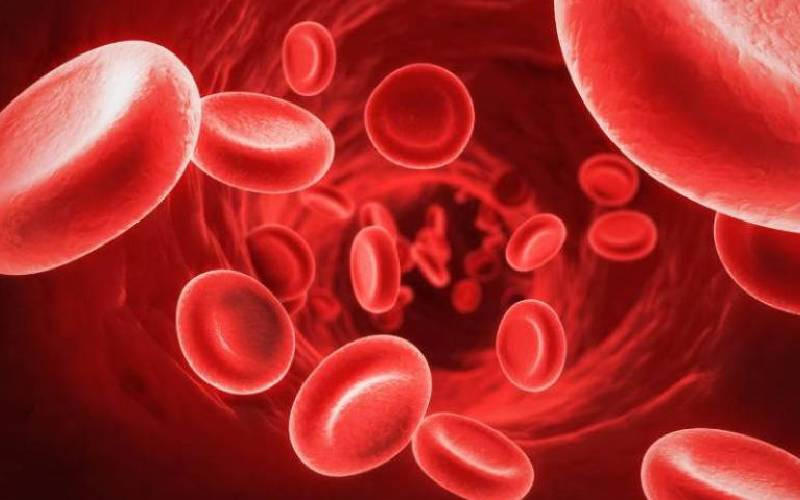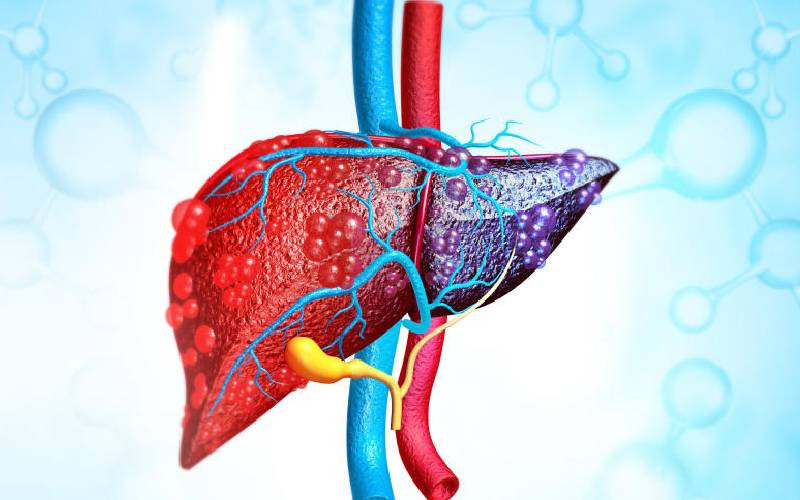
The Ministry of Health has raised an alarm over increased cases of sexually transmitted infections and infertility, in adolescents and young adults.
The cases are attributed to unprotected sex according to data by the National Syndemic Disease Control Council. (NSDCC).
Data by NSDCC reveal that in 20123, at least 309, 419 cases of STIs were attended in healthcare centers across the country.
Several cases were also undiagnosed and untreated.
Among the Sexually transmitted infections reported include Human Papillomavirus (HPV) gonorrhea and chlamydia have long-term effects if untreated.
- Governments asked to adopt new guidance of testing STIs
- Chlamydia, a silent infection causing infertility in young adults
- Let's make contraceptives accessible and affordable
- Cancer cases, STIs, infertility in young adults linked to unsafe sex
Keep Reading
NSDCC Chief Executive Officer (CEO) Dr Ruth Masha said chlamydia is a major concern as it causes infertility.
“Apart from HIV transmission, the other challenge we are facing as a ministry is the number of young people getting STIs, in particular chlamydia, which is a silent pandemic,” said Masha.
In an earlier presentation during a science conference held in Nairobi in February, Prof Nelly Mugo, Director, of Research and Development Education at Kemri said it is worrying that exposing young girls to early sex risks them from acquiring chlamydia.
Chlamydia he said is not much talked about, yet it is a disease that silently causes infertility.
“We are reporting the chlamydia pandemic. When we do our data, and we collect samples from a cohort, we find that at least 20 per cent of young women have chlamydia,” said the researcher.
In one of the studies done by Kemri, she said scientists started with girls who had never had sex, and after sex, chlamydia went up.
“Chlamydia causes infertility. A lot of sex in young people is unplanned, and they therefore do not use condoms.
Chlamydia is a sexually transmitted infection caused by a specific strain of bacteria known as chlamydia trachomatis.
According to studies, the bacteria infect the cervix, goes up to the fallopian tubes, and causes permanent damage, which is an important cause of infertility due to tubal block, or tubal damage, because of the inflammatory process.
Damage to the lining of the fallopian tubes (endosalplnx), makes it impossible to have the transportation of eggs for the fertilization process.
Blocked tubes can also damage the fimbria, which helps in taking up the egg because fertilization occurs in the fallopian tubes.
Kenya has made significant gain in reducing HIV transmission and AIDS deaths, the official said there is a trend of increased STIs.
The STIs she said are contributing to infertility and HPV that risk cervical cancer.
“As HIV is reducing, sexually transmitted diseases are going to increase then people get wounds in their private parts, they increase their chances of getting HIV,” said Masha.
She advised, “If we can avoid early sex, please let us avoid it. Please take charge of your life and be responsible for your life,”
Masha spoke during medical sensitisation program during the ongoing WRC Safari Rally happening in Naivasha.
The Ministry of Health, in partnership with NSDCC and other stakeholders, have erected six medical camps at the rally site, to sensitise the public on STIs.

The camps manned by medical officers and Community Health Providers (CHPs) are providing HIV services, and distribution of condoms.
“We are trying to say, young people, this is not a joke, it is something we can work together. Let us have fun, but now we are responsible for our lives”.
Data notes that though Kenya has made sufficient progress in the war against HIV, the progress is threatened by the number of young people being infected by HIV.
At least more than 75 percent of new infections in the country, representing about 22,000 cases, is among young people aged is among young people aged 18 and 34.
Kenya has the seventh burden of HIV globally, with 1.4 million people living with HIV.
New HIV infections reduced by 78.2 percent (101,448) in 2013, to 22, 154 in 2023.
At least 75 percent of new infections occur among adolescents and young adults aged 15 to 34 years, according to 2022 data.
“We want to ensure young people are having fun, but in a responsible manner. We have been providing services and giving condoms for those who are sexually active and trying to insist they're safer,” she added.
Additionally, young girls are acquiring HPV, which causes cervical cancer.
Masha added that the majority of young people do not know that unprotected sex puts them at risk of cervical cancer when they acquire HPV.
“The whole of the week we are educating them (young people) that it is not only pregnancy, it is not only HIV but other diseases that come with unprotected sex,” said Masha, during youth sensitisation at the Naivasha rally.
Prof Mugo said HPV causes about 99 per cent of cervical cancer, reported at a tender age of 25 years.
The researcher pleaded with parents to take their children for HPV jab, to prevent cancer.
“My conversation with parents and guardians is that it is irresponsible to fail and get girls vaccinated. Cervical cancer is not a disease to wish to anybody. It bleeds and kills, and needs not to happen,” said Prof Mugo.
She added, “For younger women, please go for screening, we can prevent it in outpatient clinics”.
 The Standard Group Plc is a multi-media organization with investments in media platforms spanning newspaper print
operations, television, radio broadcasting, digital and online services. The Standard Group is recognized as a
leading multi-media house in Kenya with a key influence in matters of national and international interest.
The Standard Group Plc is a multi-media organization with investments in media platforms spanning newspaper print
operations, television, radio broadcasting, digital and online services. The Standard Group is recognized as a
leading multi-media house in Kenya with a key influence in matters of national and international interest.











